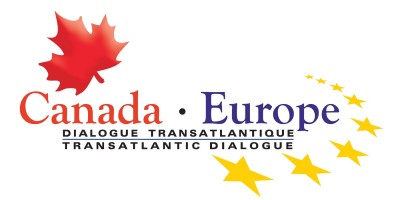Past Event! Note: this event has already taken place.
The Canada-EU Comprehensive Economic and Trade Agreement: The Never Ending Story?
October 1, 2013
| Location: | Senate Room, 6th floor Robertson Hall |
| Cost: | Free |
| More Information on CETA Roundtable at Carleton University
To view the full video that is made available by CPAC please click here The Canada-Europe Transatlantic Dialogue in collaboration with the Center for European Studies has published a series of policy briefs following the CETA Roundtable at Carleton University. To access the policy briefs listed below, please visit the CETD website: CETA and Intellectual Property: The debate over pharmaceutical patents by Joel Lexchin (York University) and Marc-André Gagnon (Carleton University) The Investment Provisions of the CETA by Armand de Mestral (McGill University) and Stephanie Mullen (LLB Candidate, Cambridge University) CETA and Geographical Indicators: Why a Sensitive Issue? by Crina Viju (Carleton University) CETA and Multi-level Governance: Implications for Provincial and Municipal Governments by Robert Finbow (Dalhousie University) |
Why are Canada and the EU having such trouble closing the deal on a Comprehensive Economic Trade Agreement (CETA), which they have been negotiating since 2009? This agreement would have a broader scope than any of Canada’s existing free trade agreements, including NAFTA. It has been suggested that 90 to 95 per cent of issues involved in the CETA have been addressed and agreed to in principle, but sticking points remain. Some of the likely contentious areas may be access to agricultural markets, patent protections on pharmaceuticals and government procurement.
Canadian government spokespersons continue to downplay any sense of urgency, but the initiation of negotiations between the US and EU to conclude their own Transatlantic Trade and Investment Partnership (TTIP) may upstage the Canada-EU agreement. The US -EU economic relationship is ten times larger than Canada’s relationship with the EU.
Bringing European and Canadian perspectives to bear, the roundtable speakers will discuss current obstacles to reaching an agreement on CETA, and whether and how these obstacles can be overcome. In addition, speakers will discuss the potential economic and political consequences for both Canada and the EU if negotiations are not successfully concluded.
CETA Roundtable Discussants
 Louis Bélanger, Université Laval is a professor of International Relations in the Department of Political Science at Université Laval, Quebec City, and the Director of the Institute for Advanced International Studies (HEI). He is the author of numerous publications on regional integration, free trade, Canadian foreign policy, inter-American cooperation, and the politics of secession.
Louis Bélanger, Université Laval is a professor of International Relations in the Department of Political Science at Université Laval, Quebec City, and the Director of the Institute for Advanced International Studies (HEI). He is the author of numerous publications on regional integration, free trade, Canadian foreign policy, inter-American cooperation, and the politics of secession.
 Robert Finbow, isProfessor and Chair, Dept. of Political Science at Dalhousie University. His current research focuses on labour and social issues in NAFTA and the EU and comparative regional development and federalism in North America
Robert Finbow, isProfessor and Chair, Dept. of Political Science at Dalhousie University. His current research focuses on labour and social issues in NAFTA and the EU and comparative regional development and federalism in North America
 Karel Lannoo, Centre for European Policy Studies (CEPS) is the Chief Executive and Senior Research Fellow at the Centre for European Policy Studies in Brussels. He is an advisor to the Canada-Europe Roundtable for Business and has written numerous publications from a transatlantic perspective on the EU and US legislative response to the financial crisis.
Karel Lannoo, Centre for European Policy Studies (CEPS) is the Chief Executive and Senior Research Fellow at the Centre for European Policy Studies in Brussels. He is an advisor to the Canada-Europe Roundtable for Business and has written numerous publications from a transatlantic perspective on the EU and US legislative response to the financial crisis.
 Crina Viju, Carleton University is an Assistant Professor at the Institute for European, Russian and Eurasian Studies at Carleton University. Her research interests include the economic effects of different trade policies applied within the EU, Canada and the US, European economic integration and EU enlargement.
Crina Viju, Carleton University is an Assistant Professor at the Institute for European, Russian and Eurasian Studies at Carleton University. Her research interests include the economic effects of different trade policies applied within the EU, Canada and the US, European economic integration and EU enlargement.
Moderated by: Chris Waddell, Director of Carleton’s School of Journalism and Communication
This event is co-organized by the Centre for European Studies (EU Centre of Excellence) and the Friedrich Ebert Stiftung, with support from the Canada-Europe Transatlantic Dialogue (CETD) and Carleton University.
![]() The event is supported, in part, by a grant from the European Union
The event is supported, in part, by a grant from the European Union


